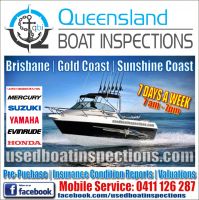What is Corrosion
If you’re shopping for an aluminium trailer boat, corrosion should be high on your list of concerns. Unlike fiberglass hulls, aluminium boats can fall victim to electrolysis and galvanic corrosion which are two sneaky forms of metal decay that can quietly eat away at your hull and fittings, often before you realise anything’s wrong.
Electrolysis happens when stray electrical current possibly from onboard wiring faults, a poorly grounded accessory, or even a nearby boat at the ramp finds its way into the water and starts using your hull as part of the circuit. That rogue current causes the metal to break down, leading to rapid pitting and bubbling of the aluminium. In bad cases, you can see small white powdery spots, blisters under paint, or deep pits forming around fittings, drains, or transom areas. Left unchecked, it can eat straight through a hull plate.
Galvanic corrosion is a little different but just as nasty. It occurs when dissimilar metals like stainless-steel bolts, copper-based antifouling, or bronze fittings are in contact with aluminium and exposed to moisture. The aluminium becomes the “sacrificial” metal, corroding to protect the others. That’s why choosing the right fittings, isolating metals properly, and keeping your anodes in good condition is absolutely essential. If the anodes are heavily wasted or missing altogether, that’s a red flag that the boat hasn’t been protected correctly.
Both problems can get expensive fast. Severe pitting around the transom, fuel tank, or hull welds can mean structural repairs or even replacement panels. And while electrolysis can sometimes be traced to a simple wiring fault, the damage it causes often isn’t as once the metal’s gone, it’s gone.
When inspecting an aluminium boat, always check around the waterline, transom, and underfloor areas for corrosion, bubbling paint, or powdery white residue. Ask how the boat’s been stored and whether accessories were professionally installed. A quick electrical test or inspection can save you from inheriting a serious problem.
In short, aluminium boats are tough but they’re not immune. Corrosion doesn’t happen overnight, but once it starts, it’s hard to stop. So before you buy, take a good look under the paint and make sure the hull’s as sound as it looks. Your best protection is a careful inspection and a healthy dose of skepticism about that “too-good-to-be-true” deal.
This information is provided as general guidance for boat buyers. Always seek the advice of someone experienced and qualified to discuss your options before purchasing or repairing a vessel.
- ...

